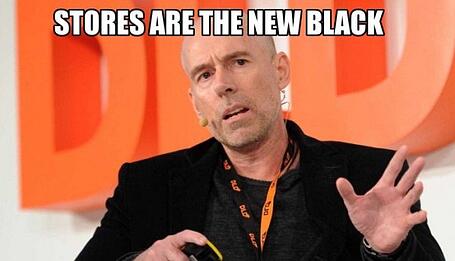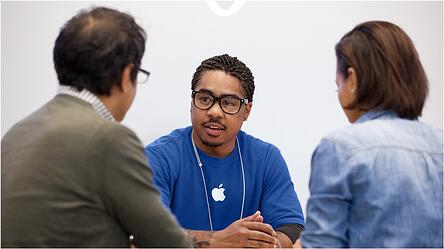
For retailers, as for any company today, a strong digital presence is a mandate.
Millennials interact via social media, email, and mobile devices. To reach that demographic, brands need a robust digital marketing strategy. However, there is a limit to the strength of a digital relationship. For one, building trust is hard. Then, there is the is the lack of a tactile relational experience with the product or service. The entire experience, while convenient, is transactional.
By design e-commerce experiences limit the level of trust that can be established with a shopper. However, in-person experiences offer greater depth, and much greater opportunity to build trust. Brands that have a personal, physical relationship with shoppers have an opportunity to build a social connection.
1. Face-to-face interactions matter, a lot

In March, Apple updated its Genius Bar service. In the past, customers had to sign up for appointments online, or head to Apple stores for a walk-in appointment. But the walk-in process required customers to wait in the store and watch a scrolling display of names, lest they miss their time slot.
Customers now describe their issue to a store representative, who adds that information to the database of waiting customers. An algorithm determines wait time and queue priority. In the meantime, customers are free to go about their business. Apple’s new system alerts customers via text when it’s time to return to the store. The Genius bar experience has solidified Apple’s gold standard in delivering customer service.
The defining reason why the Genius bar is remarkable is because it facilitates trust, interaction and service between Apple and its customers. For its efforts, consumers voted the electronics giant as the number one company in Brand Keys’ 2015 Customer Loyalty Engagement Index.
2. Brick and mortar enables a complete sensory experience

On Psychology Today, Kit Yarrow writes about sociocultural shifts that affect shoppers’ psychology. She references Edelman’s Trust Barometer, and notes that what people trust most are other people. It’s why, she writes, “‘crowd cred’ is more important than ever.” This crowd cred, she explains, is how “retailers that showcase the opinions of other shoppers — through things like ‘most pinned’ tags in stores or product ratings online — simply look more trustworthy.”
To view complete article on LinkedIn.com, please click here.